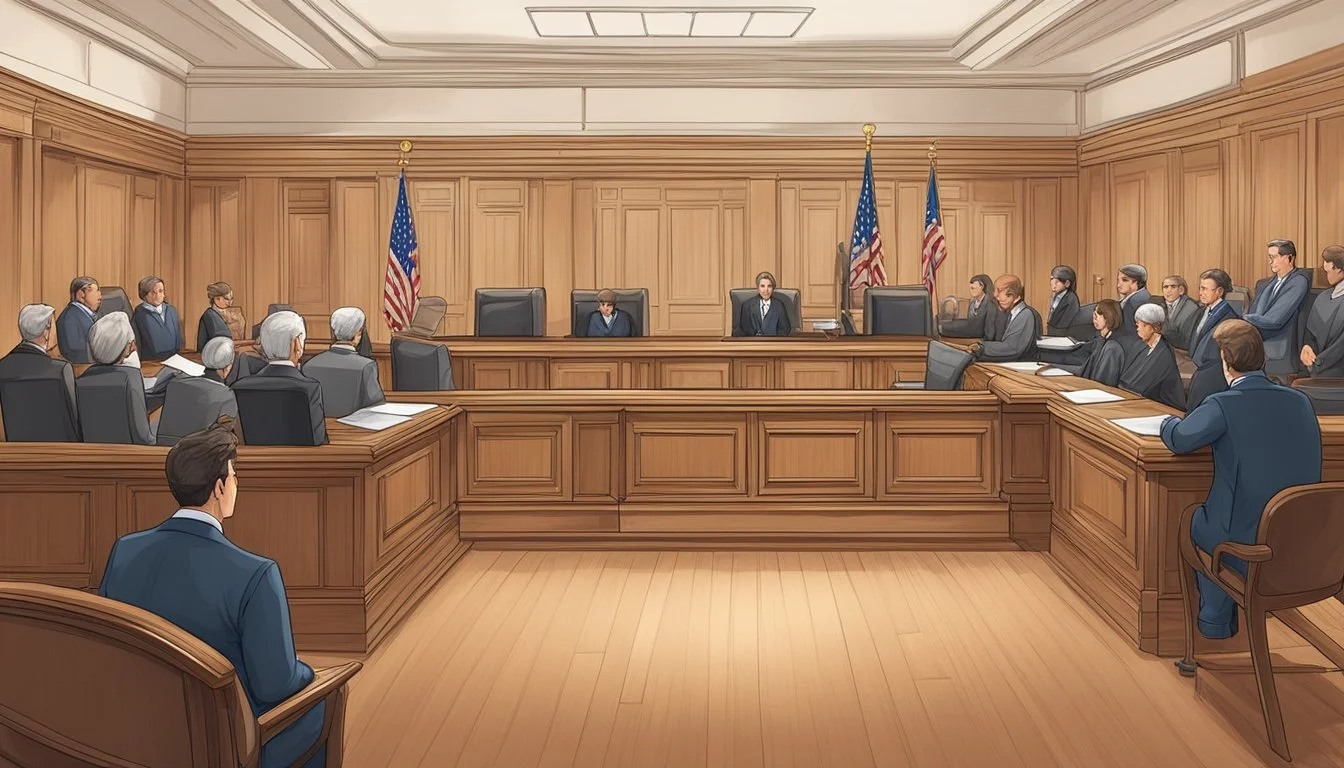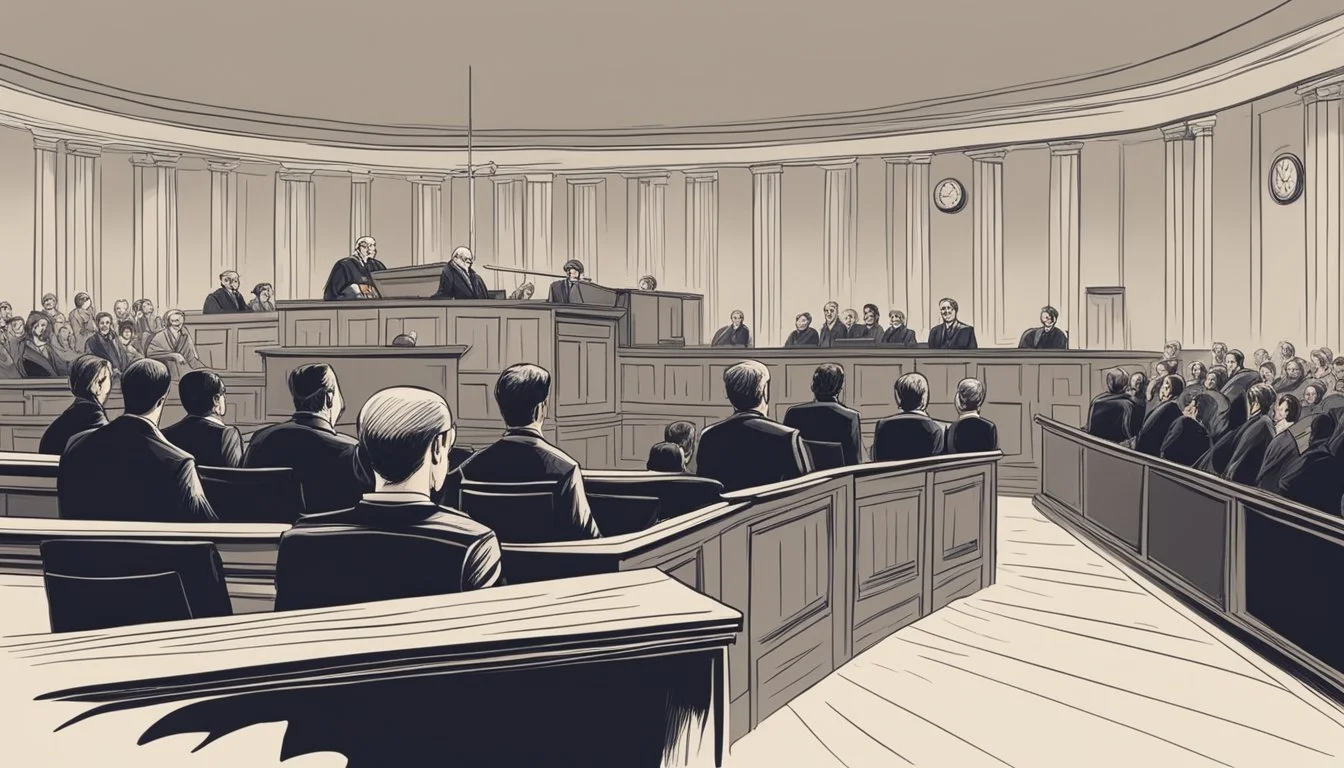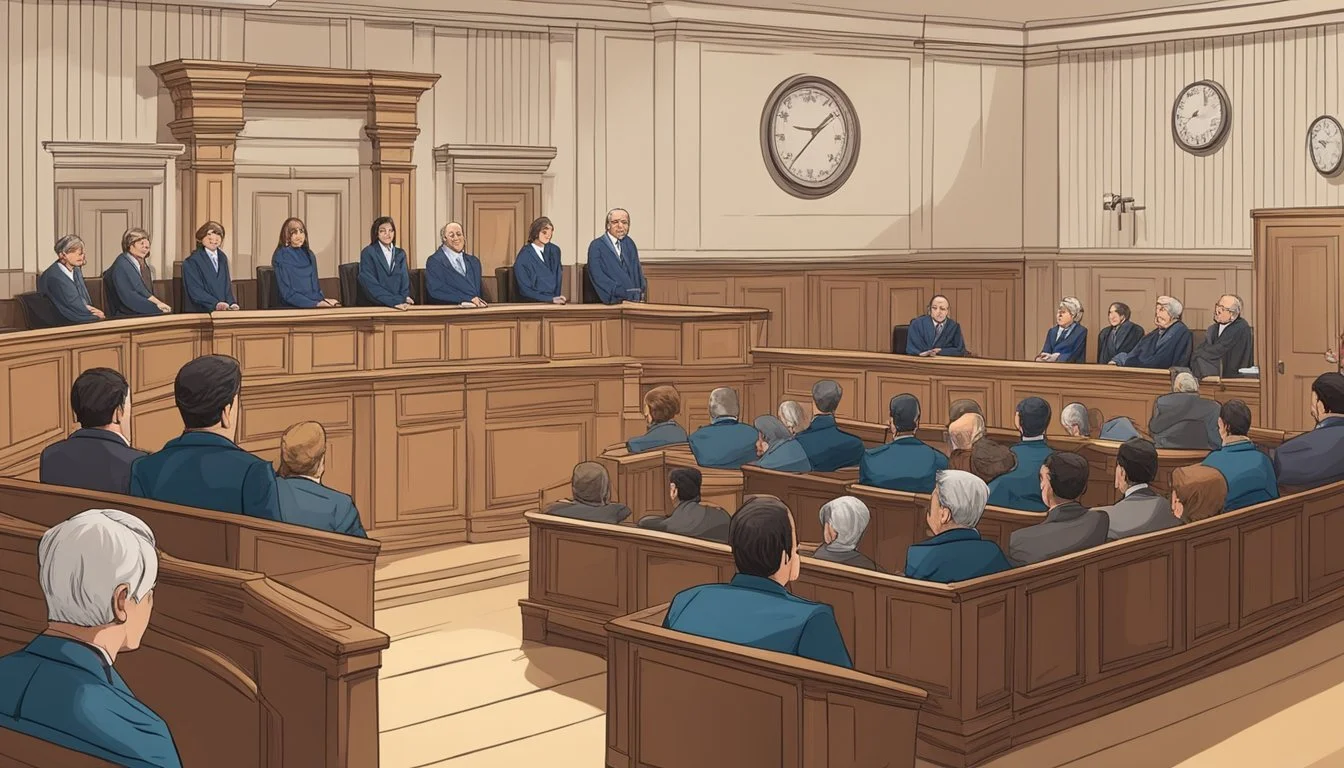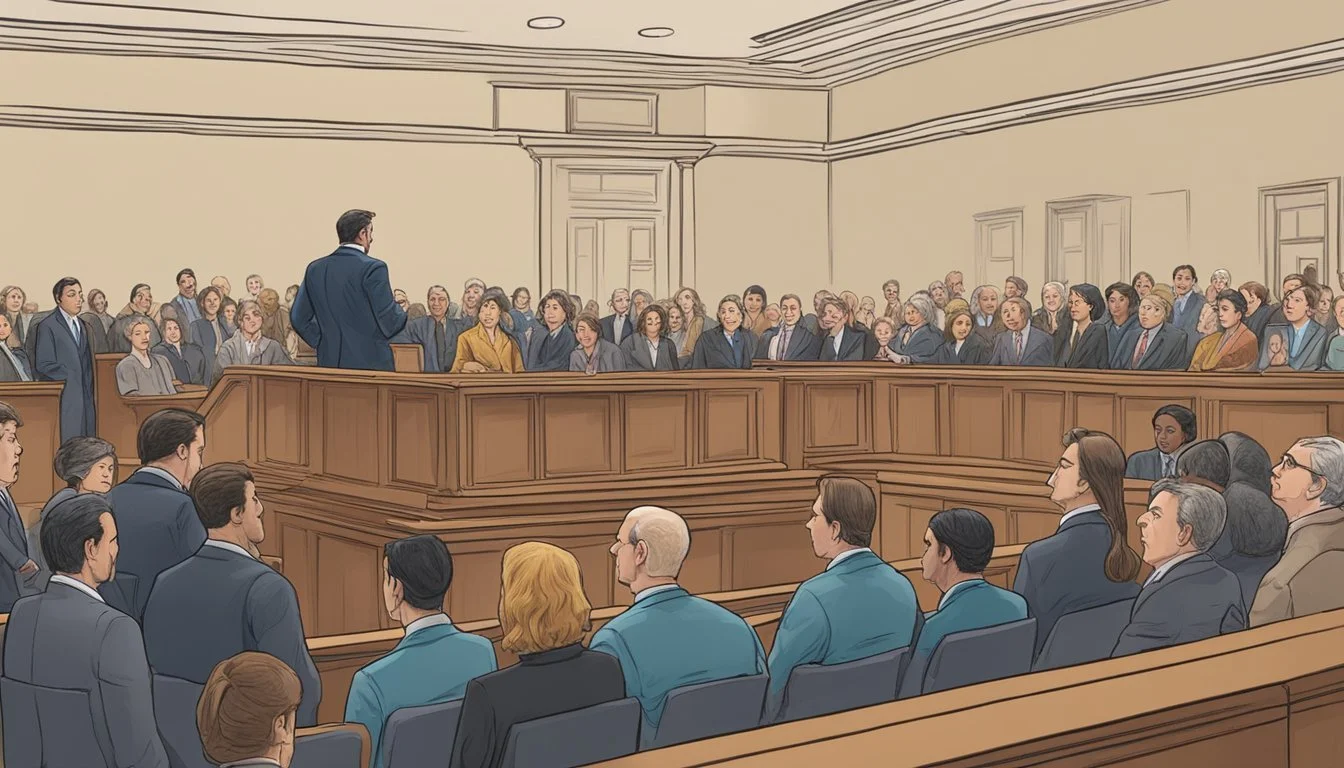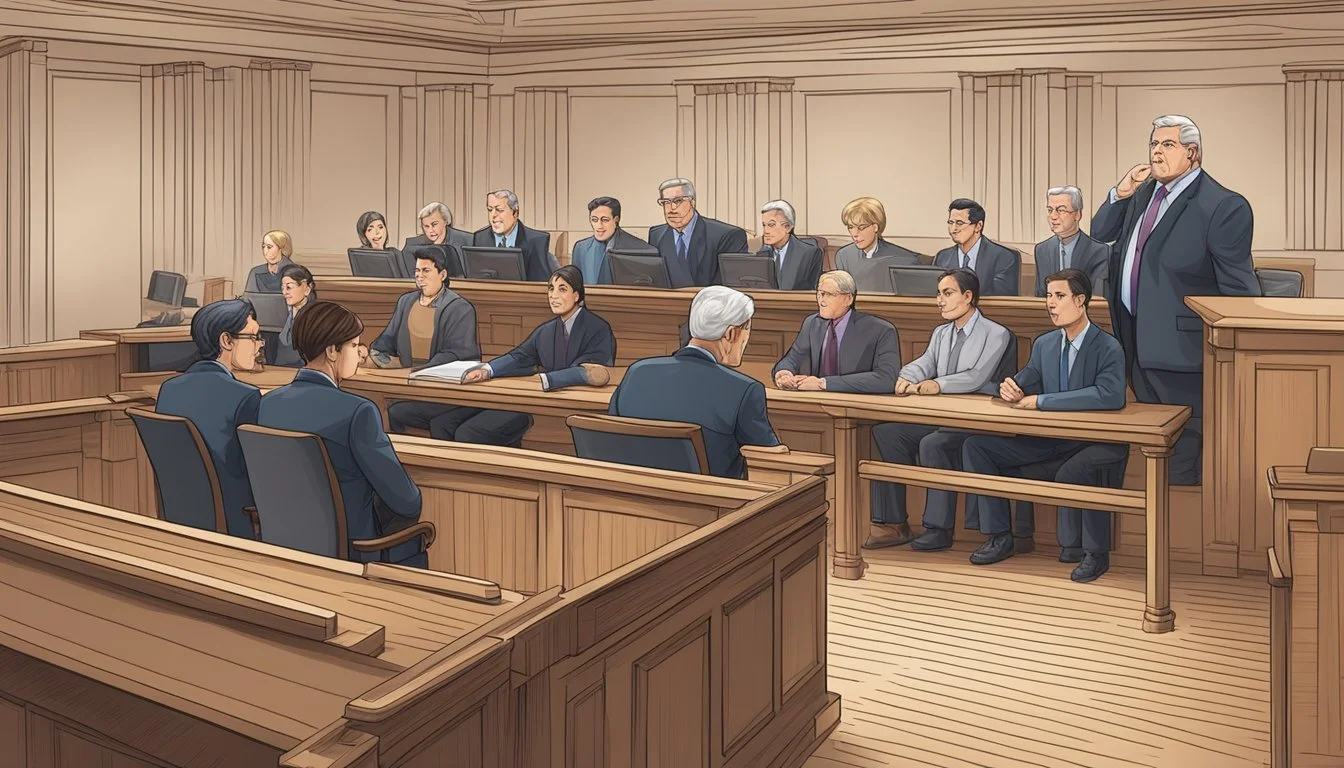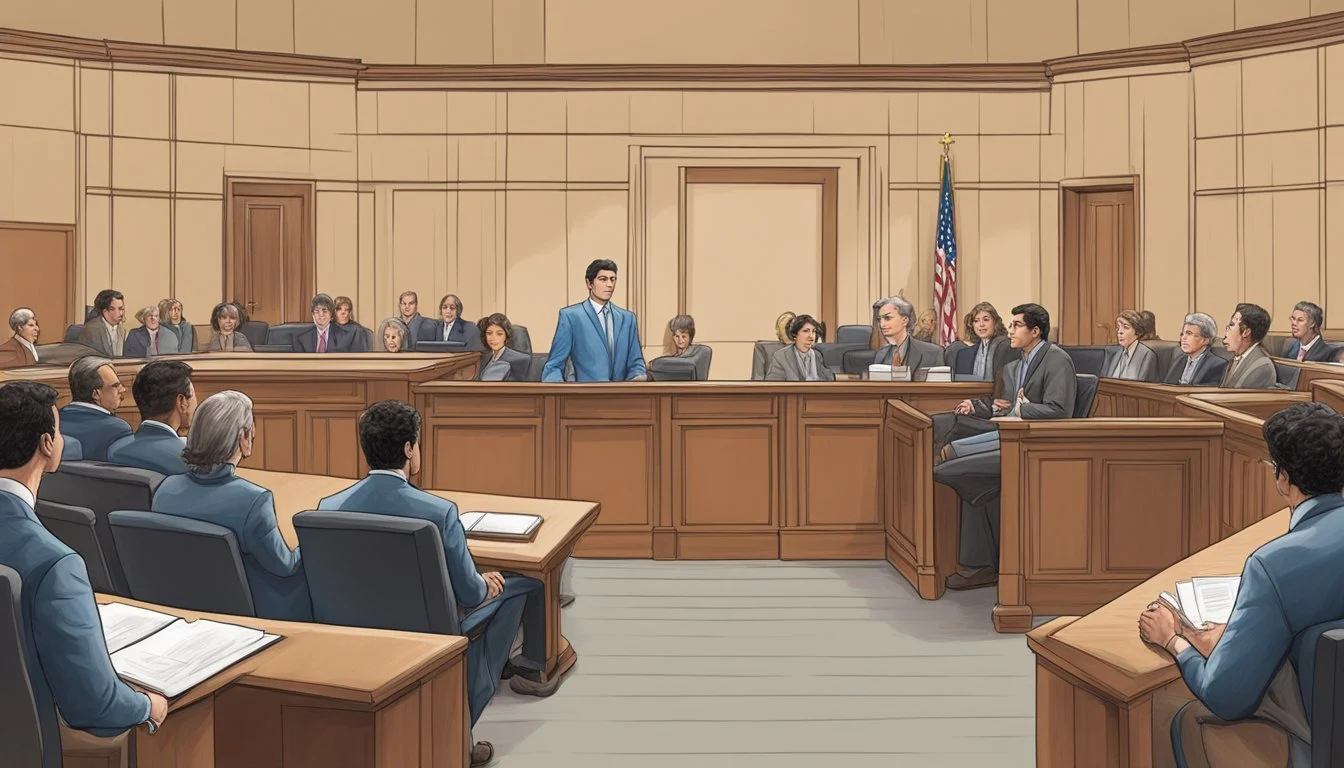Jury Psychology: Impartiality Challenges in the Menendez Brothers' Trial
Exploring Bias in High-Profile Cases
The Menendez brothers' case captivated the nation with its shocking details and complex legal proceedings. Lyle and Erik Menendez were accused of murdering their parents, Jose and Kitty Menendez, in their Beverly Hills mansion in 1989. The trial raised significant questions about jury impartiality and the challenges of selecting an unbiased panel in high-profile cases.
The case presented unique challenges for jury selection due to extensive media coverage and public opinion surrounding the brothers' alleged motives and claims of abuse. Potential jurors were exposed to intense scrutiny, as lawyers sought to identify individuals who could remain impartial despite the sensational nature of the crime and the widespread publicity it generated.
The trial's outcome hinged on the jury's ability to weigh complex evidence and conflicting testimony. Ultimately, both Lyle and Erik Menendez were convicted of first-degree murder and sentenced to life in prison without the possibility of parole. This case continues to spark discussions about the psychological factors influencing jury decision-making and the impact of media exposure on trial outcomes.
Historical Context of the Case
The Menendez brothers' case captivated the nation in the early 1990s. It involved a wealthy family, a brutal double murder, and sensational courtroom drama that spanned multiple trials.
Profile of the Menendez Family
Jose and Kitty Menendez lived in a $5 million Beverly Hills mansion with their sons Lyle and Erik. Jose was a successful entertainment executive who had amassed a $14 million fortune. The family projected an image of wealth and success.
Lyle, the older brother, was 21 at the time of the murders. Erik was 18. Both attended prestigious schools and seemed to lead privileged lives. However, the brothers later claimed their father was abusive behind closed doors.
The family's lavish lifestyle and the stark contrast with the violence that occurred would become key elements of public fascination with the case.
Timeline of the Menendez Brothers' Trial
On August 20, 1989, Jose and Kitty Menendez were shot to death in their Beverly Hills home. Lyle and Erik were arrested in March 1990 after Erik confessed to his therapist.
The brothers' first trial began in 1993. It ended in a deadlock in January 1994 when separate juries for each brother failed to reach verdicts.
A retrial with a single jury started in October 1995. This time, much of the defense's sexual abuse evidence was excluded. In March 1996, Lyle and Erik were convicted of first-degree murder.
The brothers received life sentences without the possibility of parole. Recent developments include a 2023 review of potential new evidence by the Los Angeles District Attorney's office.
Understanding Jury Psychology
Jury psychology plays a crucial role in high-profile criminal cases. Jurors must navigate complex legal and emotional terrain while striving to remain impartial.
The Concept of Impartiality
Impartiality is the cornerstone of a fair trial. Jurors are expected to set aside personal biases and preconceptions to evaluate evidence objectively. This can be challenging, especially in cases with significant media coverage.
Voir dire, the jury selection process, aims to identify and remove potential jurors with strong biases. Attorneys use questioning techniques to uncover hidden prejudices. Despite these efforts, complete impartiality remains an ideal rather than a reality.
Jurors bring their life experiences and moral frameworks into the courtroom. These factors inevitably influence their perceptions and decision-making processes.
Factors Influencing Juror Decision-Making
Numerous elements impact juror decisions. Evidence presentation, witness credibility, and attorney performance all play significant roles. Emotional factors, such as sympathy for victims or defendants, can sway jurors' opinions.
Gender dynamics within juries can affect deliberations. Research suggests women may be more empathetic to certain types of defendants or victims. Group dynamics also influence individual juror behavior.
Jurors' personal relationships and experiences shape their interpretations of evidence. Those with similar backgrounds to the defendants may view the case differently than those without such commonalities.
The length and complexity of trials can lead to cognitive fatigue, potentially impacting jurors' ability to process information effectively. Clear, concise presentation of facts becomes crucial in lengthy proceedings.
Challenges to Impartiality in the Menendez Trial
The Menendez brothers' trial faced significant hurdles in maintaining jury impartiality. Media coverage and pre-existing biases among potential jurors complicated the selection process and trial proceedings.
Media Influence on Public Perception
Extensive television and news coverage of the Menendez case shaped public opinion before the trial began. Major networks aired documentaries and dramatizations, potentially influencing the jury pool.
The sensational nature of the murders and the brothers' wealthy background attracted intense media scrutiny. This coverage often focused on salacious details rather than legal facts.
Pretrial publicity made it difficult to find jurors without preconceived notions about the case. The defense and prosecution had to carefully screen for exposure to media narratives during jury selection.
Potential Juror Biases
Jurors' personal experiences and beliefs posed challenges to impartiality in the Menendez trial. Some potential jurors may have harbored biases related to family dynamics or wealth.
The brothers' claims of abuse added another layer of complexity. Jurors' own experiences with family relationships could have influenced their perception of these allegations.
Attitudes toward gun ownership and self-defense also played a role in jury selection. The defense team sought jurors who might be sympathetic to the brothers' claims of fearing for their lives.
Economic disparities between the Menendez family and average jurors potentially affected impartiality. Some jurors might have held preconceived notions about affluent individuals or lifestyles.
Defense Arguments and Public Reaction
The Menendez brothers' trial centered on claims of abuse and arguments for self-defense. These contentious issues sparked intense public debate and media scrutiny.
Claims of Abuse
Erik and Lyle Menendez alleged severe physical and sexual abuse by their father, Jose Menendez. They testified that the abuse had occurred for years, creating a climate of fear and trauma in their home.
The defense presented evidence of psychological damage, including expert testimony on the effects of long-term abuse. Some witnesses corroborated parts of the brothers' accounts, describing the family's dysfunctional dynamics.
Critics questioned the timing and credibility of these abuse claims, noting they emerged after the murders. The prosecution argued the allegations were fabricated to gain sympathy from the jury.
Arguments for Self-Defense
The defense asserted that the killings were acts of self-preservation, not premeditated murder. They claimed the brothers feared for their lives due to ongoing abuse and threats from their father.
Lawyers argued that the brothers' mental state, shaped by years of abuse, led them to perceive a deadly threat. They emphasized the concept of "imperfect self-defense" - acting on a genuine but unreasonable belief of imminent danger.
This strategy aimed to reduce the charges from first-degree murder to manslaughter. The prosecution countered that the brutal nature of the killings and subsequent spending spree contradicted claims of self-defense.
Public opinion was divided on the validity of these arguments. Some viewed them as plausible explanations for the crime, while others saw them as calculated attempts to avoid justice.
Legal Proceedings and Outcomes
The Menendez brothers' trial was a complex legal saga spanning multiple years. It involved extensive prosecution strategies and culminated in a verdict that would shape the brothers' futures.
Key Prosecution Strategies
The prosecution's case centered on proving premeditation and financial motive. They highlighted the brothers' lavish spending after their parents' deaths, presenting evidence of luxury purchases and travel. Prosecutors argued this showed the murders were planned for inheritance.
The prosecution also focused on discrediting the defense's abuse claims. They brought in family friends and relatives to testify about the Menendez family's seemingly normal relationships. Expert witnesses were called to challenge the brothers' claims of psychological trauma.
A crucial strategy was emphasizing the brutality of the crime. Prosecutors vividly described the multiple shotgun blasts used, arguing this level of violence indicated intent rather than self-defense.
The Verdict and Sentencing
After two mistrials with hung juries, a third trial in 1996 resulted in convictions. Both Erik and Lyle Menendez were found guilty of first-degree murder with special circumstances. The jury rejected their claims of abuse and self-defense.
The brothers received life sentences without the possibility of parole. They were sent to separate prisons to serve their terms. Appeals were filed, but courts upheld the convictions and sentences.
The life sentences meant the Menendez brothers would spend the rest of their lives in prison. This outcome ended a legal process that had captured national attention for years, bringing closure to a case that had divided public opinion.
Post-Trial Developments
The Menendez brothers case has seen significant legal activity since their convictions. New evidence and shifting public perceptions have led to appeals and calls for resentencing.
Appeals and Calls for Retrial
Lyle and Erik Menendez have pursued multiple appeals since their 1996 convictions. In 2023, their legal team filed a habeas corpus petition, citing new evidence. This evidence includes allegations of abuse by their father, Jose Menendez.
The Los Angeles County District Attorney's office, led by George Gascón, announced a review of the case in October 2023. This decision came after increased public interest, partly fueled by social media and documentaries.
Kim Kardashian, a vocal advocate for criminal justice reform, has brought attention to the case. Her involvement has sparked renewed discussions about the brothers' trial and sentencing.
Resentencing and Legal Reforms
The Menendez brothers' case has influenced discussions on prison reform and juvenile sentencing. Their life sentences without parole have been criticized as overly harsh, given their ages at the time of the crime.
Efforts for resentencing have gained traction. Advocates argue that new scientific understanding of adolescent brain development should be considered in their case.
The Netflix series "Monsters: The Lyle and Erik Menendez Story" has further fueled public interest. It has led to debates about the fairness of their original trial and sentencing.
Legal reforms sparked by this case include changes in how courts handle evidence of abuse in criminal proceedings. These reforms aim to ensure a more comprehensive consideration of mitigating factors in similar cases.
Cultural Impact and Present-Day Relevance
The Menendez brothers' trial captivated public attention and left a lasting imprint on American culture. Its themes of wealth, family dysfunction, and alleged abuse continue to resonate decades later.
Media Representations and Popular Culture
The Menendez case inspired numerous films, TV shows, and books. In 2017, NBC aired "Law & Order True Crime: The Menendez Murders," starring Edie Falco. Ryan Murphy's "American Crime Story" franchise explored the case in its second season.
Netflix released a documentary series in 2023, reigniting interest in the brothers' story. The trial also featured in podcasts and true crime specials on major networks.
Pop culture references to the Menendez brothers appeared in shows like "Seinfeld" and "The Simpsons," cementing their place in the cultural zeitgeist.
Influence on Criminal Justice Perspectives
The trial sparked debates about jury selection and impartiality in high-profile cases. It highlighted challenges in finding unbiased jurors when media coverage is extensive.
Legal experts still discuss the case's impact on the use of abuse claims as criminal defenses. The trial raised questions about how juries interpret complex family dynamics and trauma.
Some argue the case influenced public perceptions of wealth and privilege in the justice system. It remains a touchstone for discussions about fairness and bias in jury selection processes.

